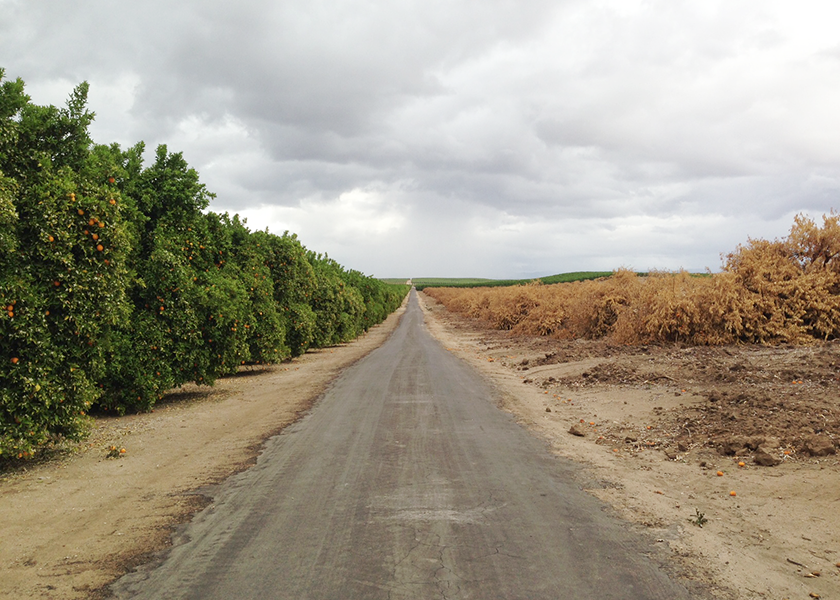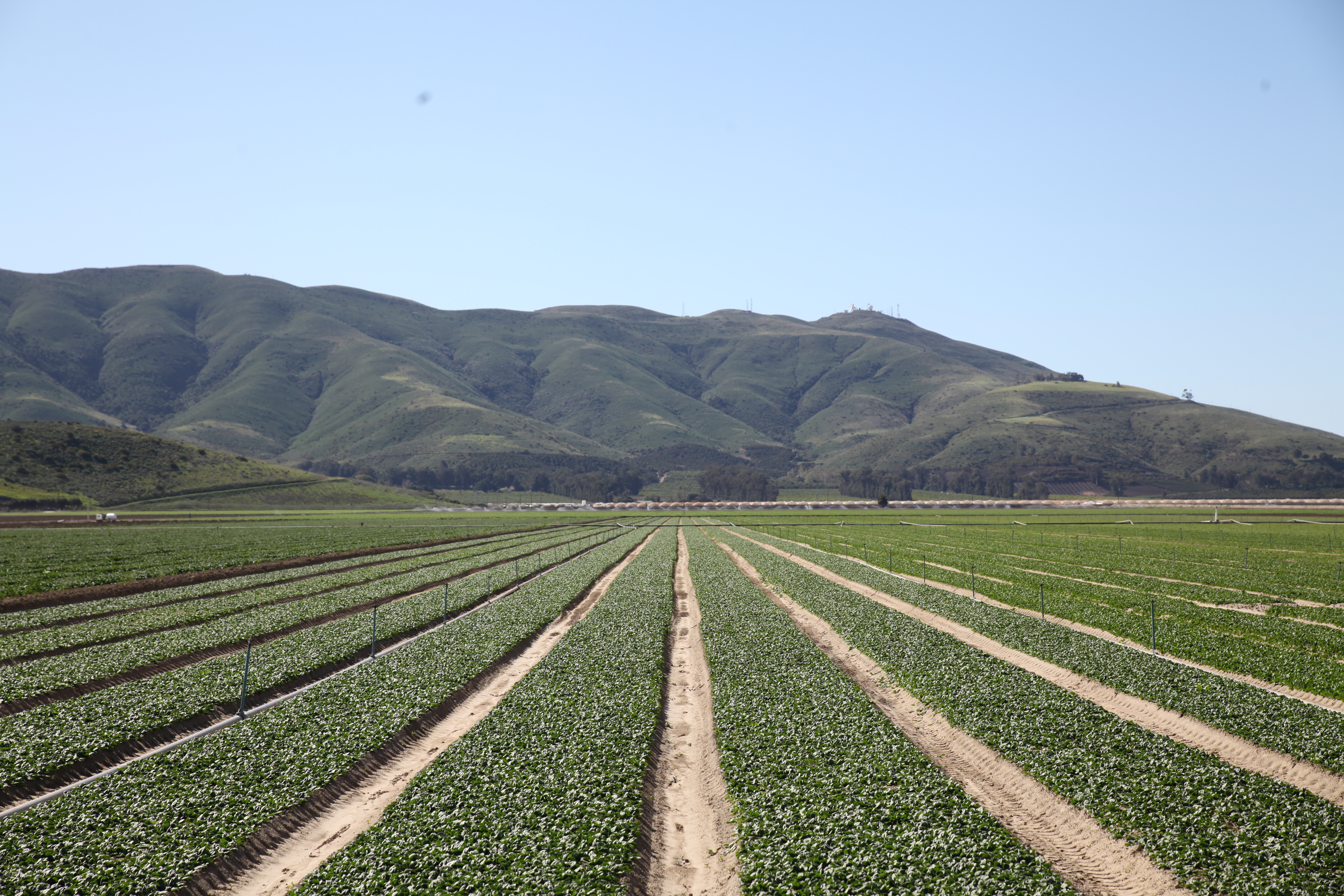California’s poor water regulation puts pressure on farmers, Western Growers leader says

Drought conditions and tightening regulations on groundwater pumping are putting California’s San Joaquin Valley growers in a vise and forcing them to fallow many acres now, and likely thousands more in the years ahead.
From the perspective of Dave Puglia, president and CEO of Western Growers, the dire situation with the drought this year could have been alleviated with better decisions by state water regulators.
“We have to be candid about it,” he said. “California has made a series of decisions at the policymaking level that acted in combination to bring us where we are today, which is the beginning of a large-scale fallowing of land,” he said.
If that land isn’t replanted, Puglia said it will bring economic and social harm to the entire region and all the people in it.
On June 30, Puglia said growers in California’s Central Valley are under intense pressure because of curtailed irrigation water allotments.
Western Growers doesn’t have precise numbers on the amount of land being fallowed because of the drought, but it represents a spike compared with a year ago. Annual crops like melons have seen cutbacks.
“I think a very serious question will be how much of that acreage ever comes back,” he said.
No one can control the climate, but Puglia said federal and state regulators could have made better decisions to protect the state’s water resources.
“California (regulators) have made decisions about how we manage resources that make it very difficult for a grower who has fallowed land in the Central Valley this year to be real optimistic about replanting next year or at some point in the future,” Puglia said.

Riches to rags
Just two years ago, the state’s large water reservoirs at Shasta and Oroville were full, Puglia said.
“Here we are (now) with zero allocations to farmers in the Central Valley; that screams either mismanagement, or policy decisions that have effectively altered the utility of California’s water infrastructure, and I think it’s the latter.”
Since 2008, policy decisions have been made, mostly at the state level, that Puglia said have been deliberately designed to reduce the flow of surface water, especially in the San Joaquin Valley.
Specifically, he said water, once available for agricultural irrigation, has been redirected to flow to the ocean through the Sacramento and San Joaquin Delta for the stated purpose of recovering threatened and endangered species.
“That has not worked,” he said. “Two years ago, with full reservoirs, we should not be now at the point today of having zero water allocations.”
That, he said, speaks to “a deliberate course” that is designed to reduce production agriculture’s viability in the San Joaquin Valley.
Another factor that will influence the supply of irrigation water to farmers, Puglia said, is the looming implementation of the Sustainable Groundwater Management Act.
That state regulation, enacted in order to halt overdraft and bring groundwater basins into balanced levels of pumping and recharge, will be phased in over the next 20 years and will eventually restrict grower access to groundwater dramatically, Puglia said.
“This year was the year that the local authorities had to submit their sustainable groundwater management plans to the state,” he said.
Those plans form a basis for growers to start understanding what restrictions were placed on them in terms of groundwater pumping in coming years.
The Public Policy Institute of California, a think tank that Puglia is involved with, projects that more than half a million acres will eventually have to be permanently retired in the San Joaquin Valley due to the Sustainable Groundwater Management Act.
Puglia said the number of fallowed acres could be bigger than that, as some water irrigation district managers he has spoken with have said the total acreage at risk could be up to a million acres in the San Joaquin Valley.
“If things don’t change, if the way that law is structured is not altered, you’re talking about a dramatic reduction in irrigated acreage.”
Currently, the San Joaquin Valley averages about 5.2 million acres of irrigated crops.
The low reservoir levels and coming groundwater regulations are acting as a “pincher” for growers in the San Joaquin Valley, he said.

Looking for change
Looking ahead, Puglia said the people of California understand that it is a powerful agricultural state, and they are proud of it.
“I don’t think we should assume that poor policy decisions, harmful policy decisions with respect to water are a permanent condition in California,” he said. “I do think that we need leadership to political leadership to represent the best interest of the entire state, which includes a healthy, vibrant agricultural industry that does things right and that stewards resources properly.”
Puglia cited one recent story that reported a prominent grower of almonds is tearing out some of his orchards and putting in solar farms.
“It is a question that needs to be posed to Californians, generally, and their political leaders,” he said.
“Is that really what you want? Do you want a bunch of dust blowing through the center of the state interrupted by fields of solar panels, which don’t employ many people? Is that what you want? Because that is the path you are on.”
Puglia said he is optimistic that some provision for California water projects can be part of any federal infrastructure bill. But grower need more support from state water regulators.
Even a wet winter in California won’t restore confidence among growers, he said.
“If you are a grower, you have to ask yourself, does (a wet year) even matter anymore? If the infrastructure won’t be used — if the dams and aqueducts and canals won’t be used to store and then convey water as they were designed to, but instead to release water through rivers and flow it out to the ocean — does it matter if we have a wet year?”







